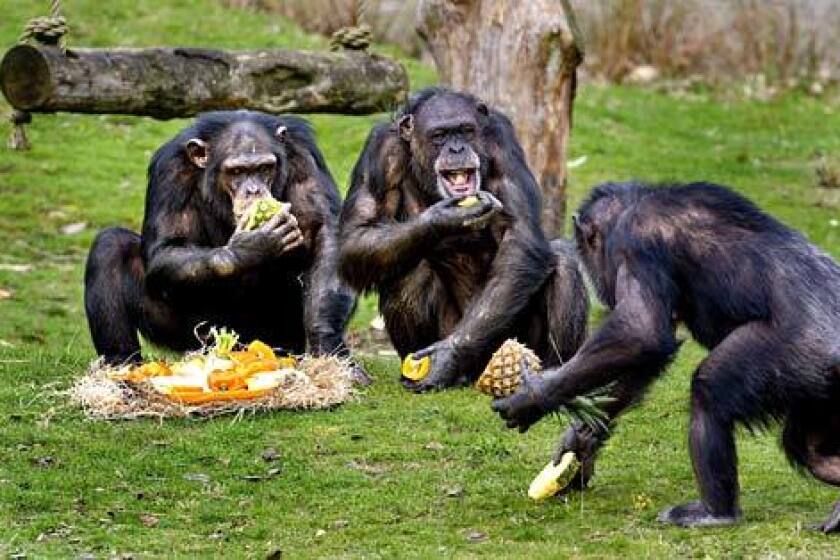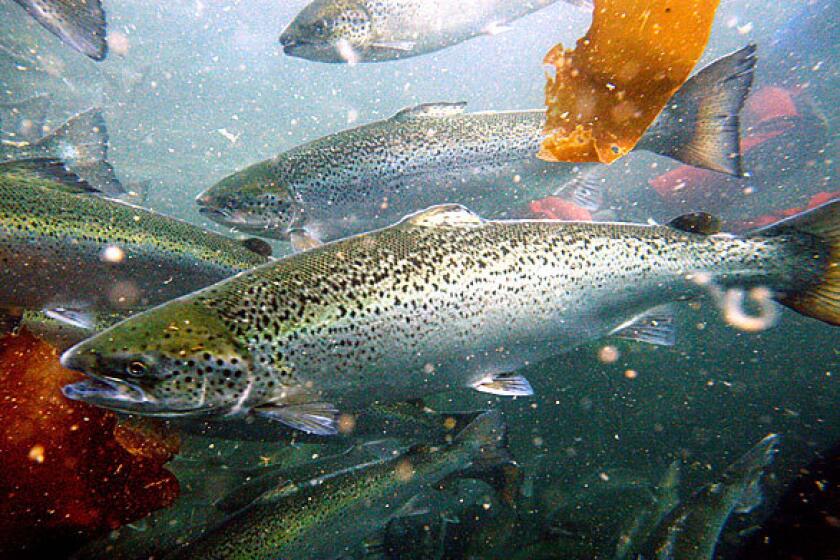More Animals Science News
- 1
It had long been believed that the disease was passed only from human to human. The new finding may explain the origin of the malady for those in the U.S. who don’t know where they picked it up.
- 2
In harbor towns hit by the March 11 quake and tsunami, residents worry that radioactive contamination of the seafood chain may cost them their livelihoods.
- 3
Francisco Ayala of UC Irvine discusses six main topics of evolution, including the tension between science and religion.
- 4
In a pair of studies, researchers observe the animals comforting the dying and showing signs of trauma after a death.
- 5
Today’s swine in China are traced back 8,000 years to the same region, revealing clues about animal husbandry and human migration.
- 6
Scientists working to save the endangered (and voracious) quoll came up with a clever solution: They trained it to hate the taste of toad so it can avoid getting poisoned.
- 7
Researchers studying enzymes that can process seaweed are astonished to find them in humans. They say the Japanese may have acquired the ability to digest nori because of their consumption of sushi.
- 8
Researchers say modifying chickens with a duck gene could protect them and reduce human exposure to dangerous influenza strains.
- 9
It is the first such discovery in the Southern Hemisphere and raises questions about why the carnivores may have failed to become dominant predators below the equator.
- 10
Scientists aren’t sure how the 12 species spend weeks underwater without breaking the surface. They don’t have gills and they don’t hold their breath.
- 11
- 12
The sediment beneath an Indiana lake is providing clues. One thing is clear: A meteor didn’t kill off the mammoths, mastodons and other large plant-eaters, as previously theorized.






